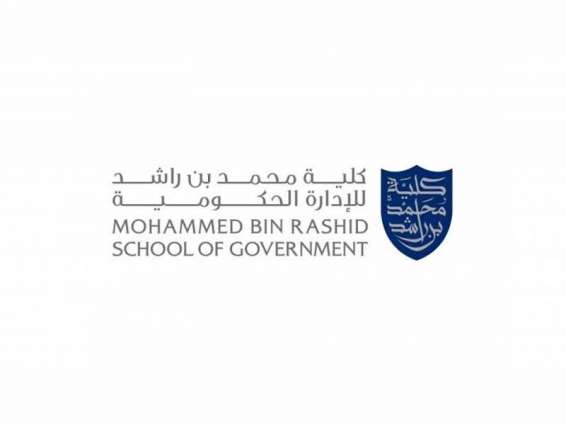DUBAI, (Pakistan Point News - 12th Nov, 2020) education, health security, and reimagining research were three of the key topics covered in the initial sessions of the sixth Global Symposium on Health Systems Research, HSR2020, which opened on Sunday.
Running throughout the week, HSR2020 is being hosted by the Mohammed bin Rashid school of Government, MBRSG, with the event examining leadership and professional development in the healthcare sector. An annual activity that attracts healthcare policymakers and experts worldwide, the symposium is being conducted virtually for the first time this year, its discussions framed by the ongoing Covid-19 pandemic.
"This is the first year that we have hosted the Global Symposium on Health Systems Research remotely, but we are delighted to say that the virtual format is proving to be no bar to its success. The first two days of the symposium have seen a packed programme of skills-building activities, plenaries, parallel sessions, special panels, and networking - all conducted by an array of distinguished speakers and contributors from around the world who are prominent in the field of health policymaking," said Dr. Ali Bin Sebaa Al Marri, Executive President of MBRSG.
The opening day of the symposium saw the session ‘Building capacities to address multi-sectoral challenges in health: Transforming the roles and experiences of educators and policymakers Health Systems and Policy Research’ run by Dr Gina Teddy, Senior Lecturer at the Centre for Health Systems and Policy Research at the Ghana Institute of Management and Public Administration, Ghana. The skills-building activity shared different experiences, processes, learning, and outcomes of interactive teaching and learning approaches through examining and assessing various continuous professional development programs.
Contributors to the session were Professor Lucy Gilson, Health Policy Division, School of Public Health and Family Medicine, University of Cape Town (South Africa); Dr. Dina Balabanova, London School of Hygiene and Tropical Medicine (UK); Dr. Meike Schleiff, Johns Hopkins Bloomberg School of Public Health (USA); Dr. Zulkarnain Abdul Karim, Centre for Health Services Research, Institute for Health Systems Research (Malaysia); Professor Anthony Zwi, Global Health and Development, Faculty of Arts and Social Sciences, University of New South Wales, Sydney (Australia) and Dr. Ayat Abu-Agla, Centre for Global Health, Trinity College Dublin, The University of Dublin (Ireland).
On Monday, the first of two key sessions were ‘All Together – Stronger Health Systems for UHC and Health Security’ delivered by Julia Sallaku, Technical Officer with the World Health Organisation,WHO. The activity explored how to strengthen health systems to manage future shocks, taking into account the COVID-19 experience. Its key message was that the foundation for both universal health coverage and health security is collective action to strengthen health systems, especially by investing in ‘common goods’ for health.
Contributors included Dr. Agnes Soucat, Director of Department Health Systems Governance and Financing, WHO; Beth Tritter, Executive Director Primary Healthcare Performance Initiative (USA); Craig Burgess, Health Data Collaborative secretariat, WHO; Dr Khuất Thị Hải Oanh, Executive Director, Center for Supporting Community Development Initiatives (Vietnam) and Professor Soonman Kwon, School of Public Health, Seoul National University (South Korea).
Dr. Jim Ricca from Jhpiego, an international non-profit health organisation affiliated with Johns Hopkins University, moderated another key session on Monday, titled: ‘Where is the local voice in academic global health? Reimagining how we produce and consume research.’




